Performance and battery life
Sony VAIO Pro 11 (Core i7-4,500U 1.8GHz,
Intel HD 4,000)
·
PCMark7: 4,634
·
3DMark06: N/A
·
3DMark11: E1,067/P600/X183
·
ATTO (top disk speeds): 558 MB/s (reads); 255
MB/s (writes)

Sony
VAIO Pro 11
Samsung ATIV Book 7 (Core i5-3,337U
1.8GHz, Intel HD 4,000)
·
PCMark7: 4,418
·
3DMark06: 4,045
·
3DMark11: E1,081/P600
·
ATTO (top disk speeds): 626 MB/s (reads); 137
MB/s (writes)
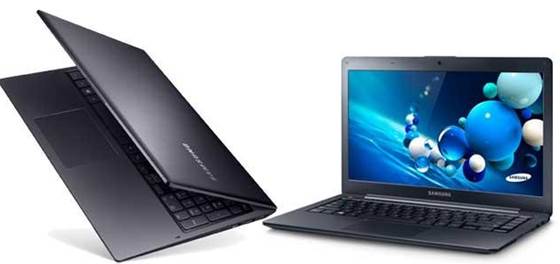
Samsung
ATIV Book 7
Asus Transformer Book (Core i7-3,517U
1.9GHz, Intel HD 4,000)
·
PCMark7: 4,414
·
3DMark06: 3,840
·
3DMark11: E924/P512/X177
·
ATTO (top disk speeds): 482 MB/s (reads); 317
MB/s (writes)
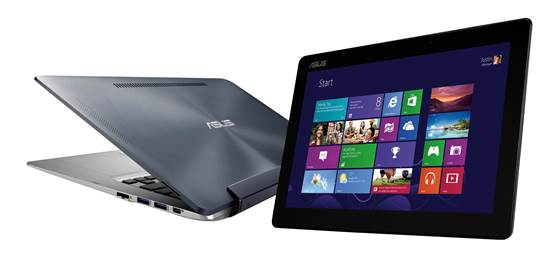
Asus
Transformer Book
Toshiba Kirabook (Core i7-3,537U 2.0GHz,
Intel HD 4,000)
·
PCMark7: 5,275
·
3DMark06: 5,272
·
3DMark11: N/A
·
ATTO (top disk speeds): 553 MB/s (reads); 500
MB/s (writes)
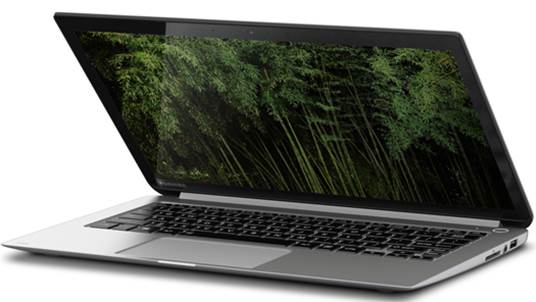
Toshiba
Kirabook
Acer Aspire S7 (Core i7-3,517U 1.9GHz,
Intel HD 4,000)
·
PCMark7: 5,011
·
3DMark06: 4,918
·
3DMark11: E1,035 / P620 / X208
·
ATTO (top disk speeds): 934 MB/s (reads); 686
MB/s (writes)
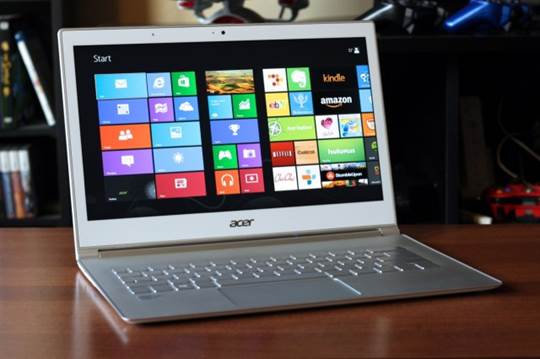
Acer
Aspire S7
MSI Slidebook S20 (Core i5-3,337U
1.8GHz, Intel HD 4,000)
·
PCMark7: 4,043
·
3DMark06: 3,944
·
3DMark11: E1,053 / P578
·
ATTO (top disk speeds): 484 MB/s (reads); 286
MB/s (writes)

MSI
Slidebook S20
Asus Taichi 21 (Core i7-3,317U 1.7GHz,
Intel HD 4,000)
·
PCMark7: 4,998
·
3DMark06: 4,818
·
3DMark11: E1,137 / P610 / X201
·
ATTO (top disk speeds): 516 MB/s (reads); 431
MB/s (writes)
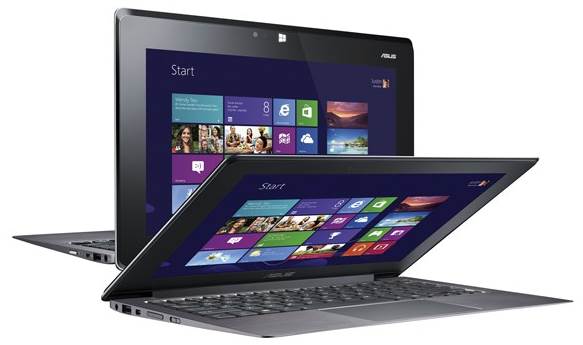
Asus
Taichi 21
Microsoft Surface Pro (Core i5-3,317U
1.7GHz, Intel HD 4,000)
·
PCMark7: 4,673
·
3DMark06: 3,811
·
3DMark11: E1,019 / P552
·
ATTO (top disk speeds): 526 MB/s (reads); 201
MB/s (writes)
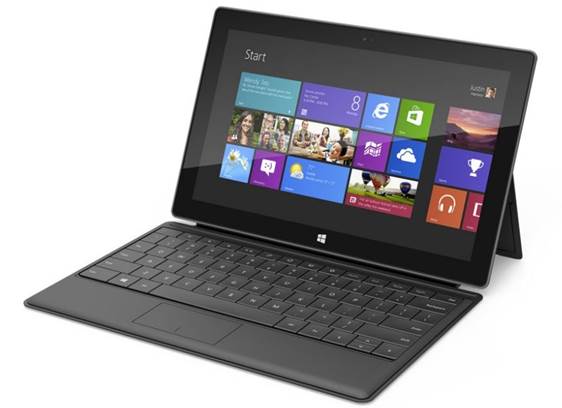
Microsoft
Surface Pro
Lenovo IdeaPad Yoga 13 (Core i5-3,317U
1.7GHz, Intel HD 4,000)
·
PCMark7: 4,422
·
3DMark06: 4,415
·
3DMark11: E917 / P572
·
ATTO (top disk speeds): 278 MB/s (reads); 263
MB/s (writes)
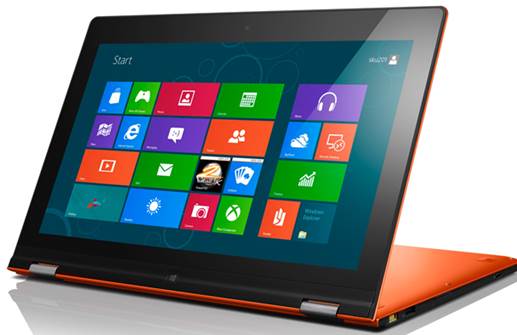
Lenovo
IdeaPad Yoga 13
Dell XPS 12 (Core i5-3,317U 1.7GHz,
Intel HD 4,000)
·
PCMark7: 4,673
·
3DMark06: 4,520
·
3DMark11: N/A
·
ATTO (top disk speeds): 516 MB/s (reads); 263
MB/s (writes)
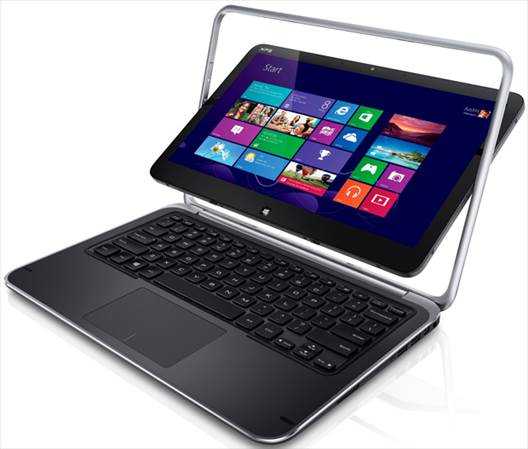
Dell
XPS 12
Since we evaluated a pre-production model,
we did not necessarily see the Pro 11 as a harbinger for other Haswell
Ultrabooks. At least in the speed tests, it was in the high-end of what we’d expect
from one of last year’s Ivy Bridge computers - a little better, but not much
better. As you will see, it is in the battery life field where the Pro really
shines, but on the contrary, Intel always promised that Haswell would offer a
significant enhancement of the runtime.
Whether the Pro 11 is likely to represent
Haswell Ultrabooks or not in general remains to be seen, but we know this:
there are not any measures that the Pro could be considered slow. It starts in
seven seconds, which is a little faster than the other Ultrabooks, and its SSD
offers the maximum read speeds up to 558MB/s on average. Its average write
speeds of 255MB/s are also quite respectable. The machine is still relatively
quiet, but of course the fans speed up when you're playing the game, especially
at maximum frame rates. However, despite this, the noise is small compared to
what we've heard from the new Toshiba Kirabook. In terms of heat, the keyboard
area becomes warm, especially towards the function keys, but the hottest area is
evidently the vent, located on the left side, near the rear. Fortunately, it is
easy to avoid that spot with your fingers, though you may feel the heat if you
decide to do with this stuff on your thigh.
If you consider the battery life comparison
table, you will see the two worst results that we have noted recently come from
the 11-inch devices: the Asus Taichi 21 and the Microsoft Surface Pro. In
general, regardless of the screen size, touch screen PCs have created quite bad
runtimes. So, if you equip your computer with a 1,080p screen and a smaller
chassis with less room for the battery, you are likely to expect particularly
weak performance - about four hours on a single charge. If we did not know better,
we’d have wished the Pro 11 to provide the similar figures.
But of course we know better: the Pro is
not only another first-generation Windows 8 Ultrabook. No, this guy comes with
a Haswell processor, which makes a promise of a 50 percent increase in running
time compared to last year’s Ivy Bridge chips. Indeed, we breezed past the
four-hour mark, creating an incredible six hours 41 minutes. And that is with a
Core i7 processor! Let’s imagine what this thing can do with a lighter Core i5
chip?
Or how is about an extended battery? Sony
is selling large batteries for the Pro 11 and Pro 13, and it promises to double
the runtime in both cases. Unfortunately we have not tried this yet, but we are
impressed with the selection. How many Ultrabooks do you know of that can
supply two batteries at the same time right?
In reality, we are tempted to propose the
Pro 11 just on account of its battery life, but the reality is, if every
Haswell laptop is supposed to offer like this, surely it is better that you
should wait for the other models to release. After all, if this type of
performance turns into the new standard, you can leave all of the other
subjective factors interfere with your purchasing decision. You know, such as
the comfort of the keyboard, or trackpad quality.